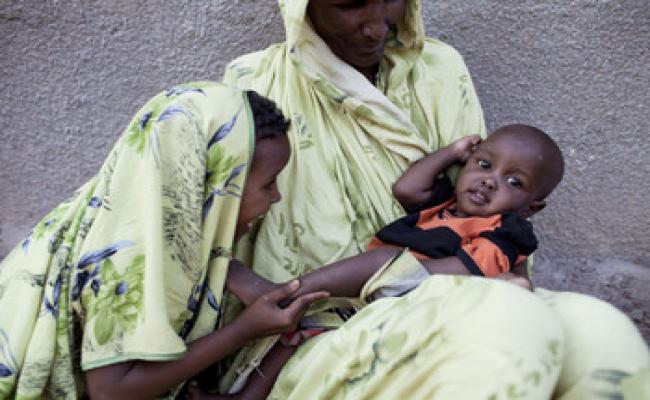
Providing vital aid

The recent news that a British man has been killed and his wife kidnapped, in Kenya by Somali pirates has reignited the UK’s interest in war-torn Somalia.
Once again the poverty, violence and desperation that sometimes seems endemic to the country has spilled over the border, with tragic consequences.
For those people living and working in the shadow of Somalia, along the Kenya/Somalia border in north east Kenya, insecurity is an everyday part of life.
Working around the clock
Save the Children has teams working around the clock in both north east Kenya — places like Wajir, Mandera, Dadaab and also within Somalia.
These areas have been hit hard by the drought — with thousands of Somalis fleeing the combination of the drought and war, ending up in Kenya where resources are more scarce than ever.
Children living in the region are rapidly becoming malnourished and more susceptible to disease.
In some areas, a child is dying every six minutes.
How would she survive?
Bishara (pictured above) was 15 months old when Save the Children staff first saw her in Wajir. Suffering from diarrhoea, she was severely malnourished. She was too weak to eat, so was being spoon-fed by her grandmother, but kept getting sicker.
Her whole family are pastoralists, and dependent on their animals for food, milk and income. When the animals perished in the drought, Bishara’s family were worried that she would not survive either. Usually the family migrated with their animals, following rains and good pasture. Now they cannot leave Wajir, where the aid food is distributed.
Bishara is recovering well after being treated by Save the Children staff, but many children are not as lucky.
Trapped by hunger
It’s a devastating situation — forced to remain in one place, hungry and dependent on others for food.
The Somalis I met in north east Kenya were proud people, resilient and determined to find a way to survive. But the situation is getting worse.
Save the Children is urgently flying and trucking more food and essential supplies to the region - but the biggest issue we face is a lack of funds to carry out what is already a major emergency response.
Our teams are in place and already all hours, but the need is enormous and we need more funding to scale up our activities and provide this vital aid before it’s too late.
What we’re doing
We’ve just flown 30 tonnes of highly-nutritious peanut paste into Nairobi, ultimately destined for war-torn Somalia.
We’re already feeding 8,500 children a month there - this supply will help us feed thousands more.
It’s a challenging journey, and an exceptionally difficult place to work in.
Save the Children is providing life-saving help with food, water and medicine - and the need for our aid has never been greater.
Catherine Carter
Read more from Save the Children's work in East Africa.

